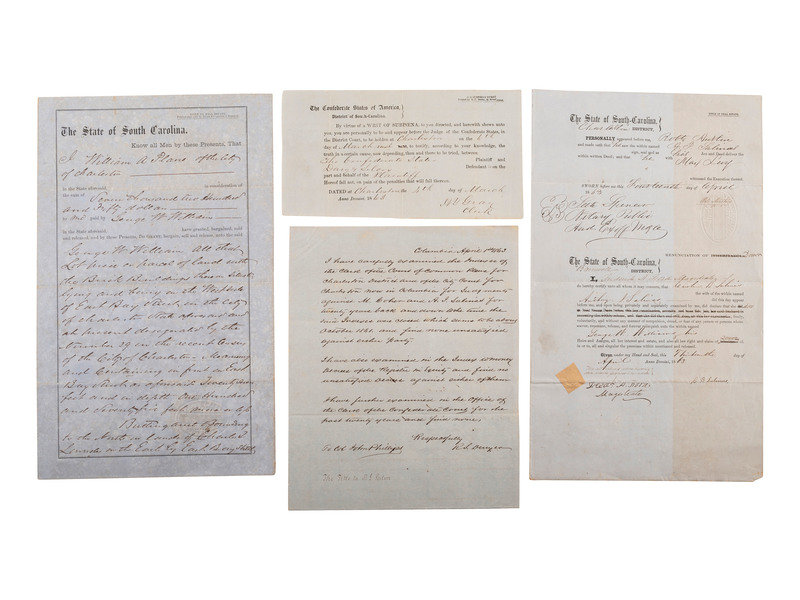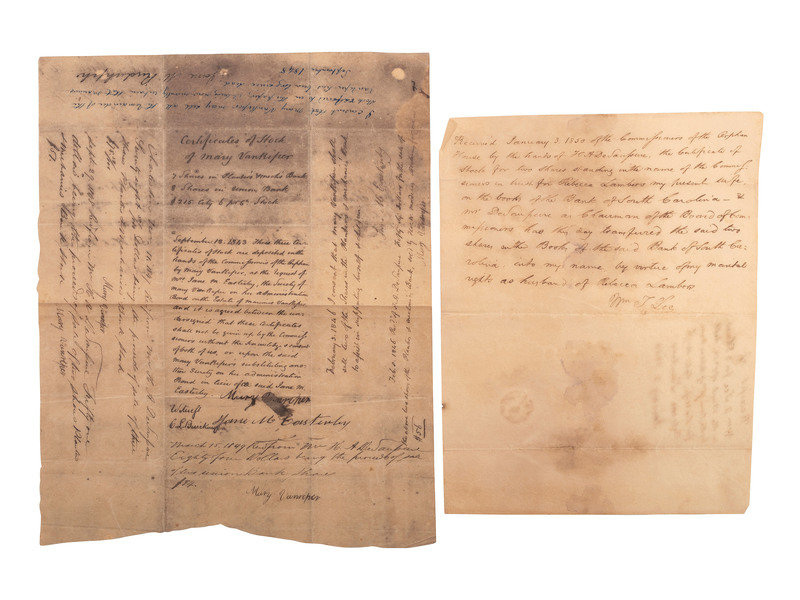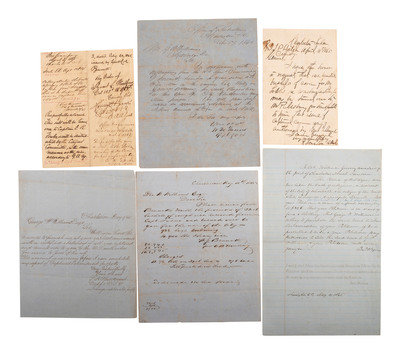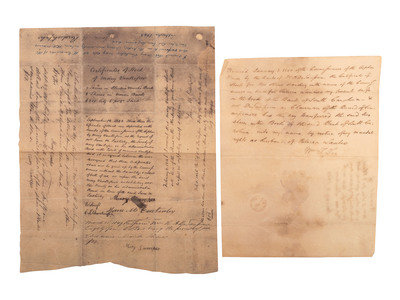Lot 651
[CIVIL WAR]. Documents related to the surrender and occupation of Charleston, SC.
Sale 1194 - American Historical Ephemera & Photography Online
Lots Open
Jun 26, 2023
Lots Close
Jul 7, 2023
Timed Online / Cincinnati
Own a similar item?
Estimate
$200 -
400
Price Realized
$504
Sold prices are inclusive of Buyer’s Premium
Lot Description
[CIVIL WAR]. Documents related to the surrender and occupation of Charleston, SC.
Union Captain W.W. Turner letter to George W. Williams regarding the confiscation of rice in the city mills. Charleston, 17 February 1865. -- Captain E.R. Fowler writes indicating that George Williams has found a cache of salt formerly belonging to the state of South Carolina. Docketed multiple times including by Col. Stuart L. Woodford, 103 USCT. Charleston, 3 March 1863. -- Autograph letter signed by General Rufus Saxton authorizing a shipment of captured corn to be turned over to Mr. Pillsbury. Charleston, 10 April 1865. -- Letter to Commissioner George W. Williams from Captain S.H. Sturdivant requesting "a certified statement of all rice captured and turned over to you by the U.S. authorities for issue to the poor of this city" which was necessary for the completion of Sturdivant's report on captured and abandoned property. Charleston, 3 May 1865. -- Manuscript letter to George Williams detailing 922 bags or 80,840 lbs. of clean rice processed with charges shown for milling. Charleston, 15 May 1865.
[With:] Pre-printed bill of sale executed 25 March 1863 showing the sale of #29 East Bay Street for $7250 by William A. Plane to George W. Williams. -- Pre-printed bill of sale executed 13 April 1863 showing the sale of property at #97 King St. for $4500 by Anthony J. Salinas to George W. Williams. -- Document outlining the results of search for judgements against M. Cohen and A. J. Salinas, Columbia, 1 April 1863.
[Also with:] Confederate Subpoena of the firm Dary & Silcox, Charleston, 4 March 1863. -- South Carolina banking documents regarding stocks, 1849-1850.
George Walton Williams (1820-1903) was a prominent Charleston merchant, banker, railroad executive, and civil servant. The History of Banking in South Carolina from 1712-1900 includes this description of Williams: “at the breaking out of the War between the States we find Mr. Williams at the head of two of the largest commercial houses in the South, an Alderman of the City of Charleston, Chairman of the Ways and Means Committee…; director of the Bank of South Carolina, and also two railroad companies…” He was later appointed by the state legislature to procure supplies for Confederate soldiers' families and was put in charge of procuring food and provisions for Charleston, even as the city changed hands from Confederate to Federal control.
Estate of Carroll J. Delery III, Formerly the “Historical Shop”
Condition Report
Auction Specialist





